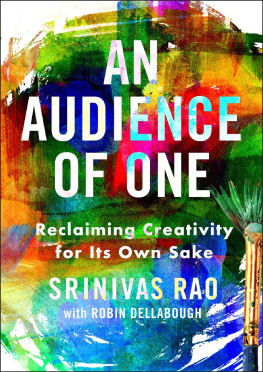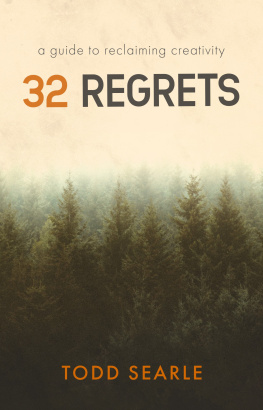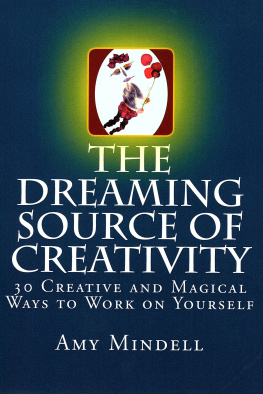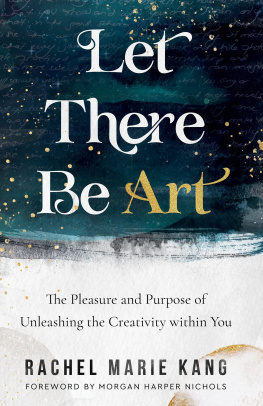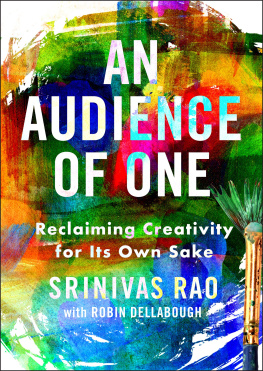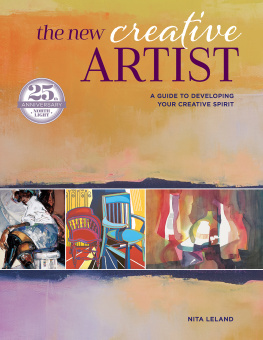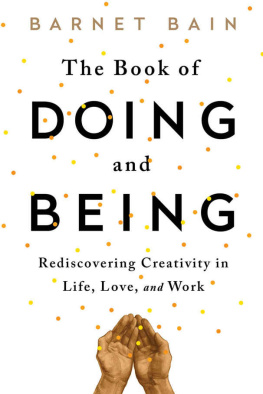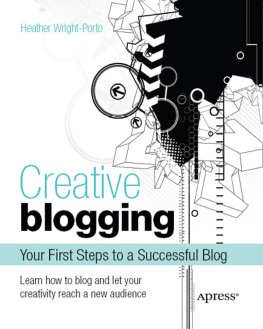

Portfolio/Penguin
An imprint of Penguin Random House LLC
375 Hudson Street
New York, New York 10014

Copyright 2018 by Srinivas Rao
Penguin supports copyright. Copyright fuels creativity, encourages diverse voices, promotes free speech, and creates a vibrant culture. Thank you for buying an authorized edition of this book and for complying with copyright laws by not reproducing, scanning, or distributing any part of it in any form without permission. You are supporting writers and allowing Penguin to continue to publish books for every reader.
Library of Congress Cataloging-in-Publication Data
Names: Rao, Srinivas (Host of The Unmistakable Creative podcast), author. | Dellabough, Robin, author.
Title: An Audience of One: Reclaiming Creativity for Its Own Sake / Srinivas Rao with Robin Dellabough.
Description: New York: Portfolio/Penguin, [2018] | Includes bibliographical references and index.
Identifiers: LCCN 2018005892 (print) | LCCN 2018013640 (ebook) | ISBN 9781101981757 (ePub) | ISBN 9781101981733 (hardcover)
Subjects: LCSH: Creative ability in business. | Creative ability. | Success. | Success in business.
Classification: LCC HD53 (ebook) | LCC HD53 .R353 2018 (print) | DDC 650.1dc23
LC record available at https://lccn.loc.gov/2018005892
While the author has made every effort to provide accurate telephone numbers, internet addresses, and other contact information at the time of publication, neither the publisher nor the author assumes any responsibility for errors, or for changes that occur after publication. Further, the publisher does not have any control over and does not assume any responsibility for author or third-party websites or their content.
Version_1 To my father, who instilled in me a lifelong love of music and taught me to appreciate the beauty that emerges when we truly listen; and to my mother, who instilled in me a love of books.
CONTENTS
INTRODUCTION
D avid Bowie was arguably one of the greatest creatives of the last fifty years. By the time he died in 2016, he had produced no fewer than thirty-six albums and more than one hundred singles. He had acted in a few dozen films and exhibited his paintings widely in museums and galleries. He cowrote a Broadway show and developed an internet platform for creative content called BowieNet. He invented the Verbasizer, a sentence randomizer app for writing lyrics. By any standard, Bowie was wildly successful, both artistically and commercially. As a cultural icon, he achieved more than mere fame.
His creative quest wasnt always met with critical acclaim or financial gain, but he accepted the occasional lack of acceptance as a necessary condition of how he had decided to live: People have either really accepted what I do, or they absolutely push it away, Bowie told an interviewer. I didnt strive for success. I tried to do something artistically important.
His singular life was studded with innovation, and he practically invented reinvention. Where someone else might have rested in the glam rock Ziggy Stardust glory days, Bowie zagged with Diamond Dogs and then Young Americans. After that foray into soul, he left for Europe and experimental electronic music. Friend and collaborator Brian Eno explained Bowies fearless shape-shifting as a way to duck the momentum of a successful career and keep his work fresh and interesting, for himself as much as for his audience. No doubt that one crucial common denominatorcreating for himself, an audience of oneis what kept him a vital, timely, authentic artist right up until his death.
If youre in pursuit of pleasing others instead, its easy to forget exactly why you initially started working on a creative endeavor. Bowie did not forget, saying:
Never play to the gallery. Never work for other people in what you do. Always remember that the reason you initially started working was there was something inside yourself that, if you could manifest it, you felt you would understand more about yourself. I think its terribly dangerous for an artist to fulfill other peoples expectations.
Attempting to fulfill other peoples expectations is a fools errand when it comes to creative work.
Its inevitable that you will fail on some level, make compromises you regret, and end up with your worst work. You may or may not find acclaim but youll be pretty miserable as a creative if you dont follow your heart. Bowie not only believed that, he embodied what it means to create for an audience of one.
The ultimate paradox of creative work is that what you create for an audience of one is much more likely to reach an audience of millions.
CREATING FOR AN AUDIENCE OF ONE
Many creators dream of the day when millions of people will listen to their shows, read their books, buy their products, or watch them perform. But what will you bring to the table when youre performing only for an audience of oneyourself?
We tend to undervalue creating only for ourselves and overvalue creating for a huge audience. But your audience of one will be there every day when you wake up. If you think that youll step it up only when the audience is larger, the audience paradoxically wont get any larger.
Most of what I create doesnt see the light of day. Over the course of a year Ill write close to 500,000 words. A minuscule fraction makes it into articles and books. By not sharing everything I make, I have freedom to play, to experiment, and to fail. Im able to practice my art free of judgment, opinions of others, and expectations. Im able to listen to myself and tap into an opportunity for full self-expression and self-exploration.
If you dont develop a regular practice of creating in private, the pressure to succeed becomes so great that you suffocate your creativity. In Originals: How Non-Conformists Move the World , Adam Grant found that people who had the most creative breakthroughs had a high volume of creative output. The cumulative output of any creative effort was more important to successful work than any individual piece of work. In private not only are we able to increase the volume of our creative output, but our creativity gets the space it needs to breathe, sing, and dance. It gets the space it needs to evolve from a mess into a masterpiece.
What you create in private often plants the seeds for your most resonant and impactful work, work thats ready for public consumption.
What we control in any creative endeavor is our effort, what we do each day to nurture our creativity, and our commitment to the process. Forget about the bestseller lists, the gallery openings, and the shining lights. The creation of fulfilling creative work is the result of losing yourself in the moment. When the work is done, your role comes to an end. The fate of a book, a film, a music album is ultimately out of your hands. You cant control how the world responds. But you can choose to appreciate and acknowledge your effort and simply start again. As author Ryan Holiday noted upon completion of one of his books:
One of the hardest things to do is separate your work and the effort that you put in from the results. An actor doesnt control the movie around them. They dont control what the other actors do. They dont control the marketing budget. They dont control the distribution. They could do the role of a lifetime, but the director or editor could mess it up in postproduction. If your happiness with your job and your career is dependent on how the movie does at the box office, or how the critics respond to your role, you have placed your happiness with your own life in the hands of other people, and thats a recipe for profound disappointment.
Next page
